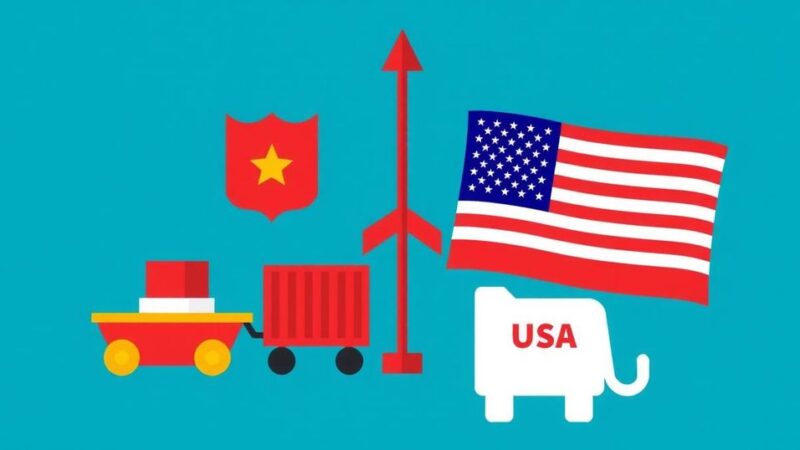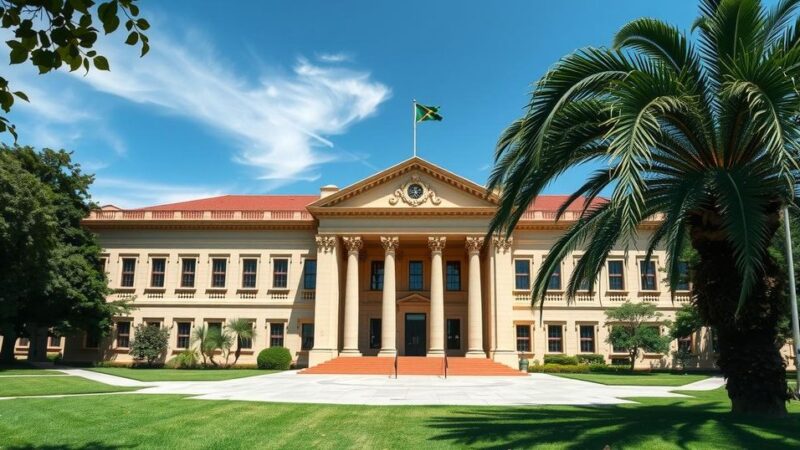Project Thusano has been rebranded as Project Kgala following R1.7 billion in irregular expenditure. This initiative focuses on training South African National Defence Force personnel in Cuba. The Department of Defence claims the restructured project will cost significantly less than its predecessor, although concerns still exist about its effectiveness and fiscal management.
The initiative initially known as Project Thusano, which resulted in R1.7 billion of irregular expenditure, has been rebranded to Project Kgala. Originally signed in January 2012, Project Thusano concluded earlier this year, with the new contract commencing in January. Representatives from the Department of Defence and Military Veterans (DoD) presented the updated project parameters to the Portfolio Committee on Wednesday.
Project Thusano was a collaborative arrangement focusing on professional transport and medical training services for the Department of Defence personnel in Cuba. The DoD defended Project Kgala as a continuation of the historical ties established through Project Thusano, highlighting Cuba’s resilience in maintaining its armed forces amid economic challenges. They propose that Project Kgala will enhance the South African National Defence Force (SANDF) through professional skill development aimed at self-sustainability.
Financially, Project Thusano had a significant cost of R3 billion over ten years. In contrast, the DoD announced that Project Kgala will cost R537 million over the next five years. The Auditor-General’s report identified about R1.7 billion in irregular spending linked to the project, primarily due to training services and vocational training programs. Root causes cited included insufficient cost-benefit analyses and poor record-keeping, which strained financial transparency and decision-making.
The DoD claimed to have made necessary adjustments to address these issues, including reducing fees and fixing costs, while streamlining operations for efficiency. They clarified that vocational training in Cuba would now be recognized as a foreign learning opportunity, and this remains the only contract with Cuba regarding technical services for the SANDF.
The Auditor-General reported several deficiencies associated with Project Thusano, including unrecorded labor in vehicle repairs and excessive costs for sending medical and transport students to Cuba. Of the South African medical students sent to Cuba, many did not meet local standards upon their return. The lack of accreditation for returning students was a major concern, with only 52% receiving qualifications acknowledged by the South African Qualification Authority.
The DoD argued that collaboration with Cuba is essential due to South Africa’s insufficient capacity to train its military personnel effectively. Critics like the EFF’s Carl Niehaus and the DA’s Christiaan Hattingh expressed skepticism regarding the efficacy of the program, highlighting the gap between the project’s stated objectives and actual outcomes. Hattingh stated that rebranding the project did not change its fundamental issues, likening the situation to “changing this animal’s name from Thusano to Kgala.”
In conclusion, the transition from Project Thusano to Project Kgala illustrates ongoing challenges related to financial accountability and effective training within South Africa’s military partnerships. Despite the rebranding, concerns regarding the project’s cost-effectiveness and outcomes persist. The government aims to enhance SANDF capabilities while critics question whether the changes will yield the desired improvements in local training capacity and fiscal responsibility.
Original Source: www.citizen.co.za






